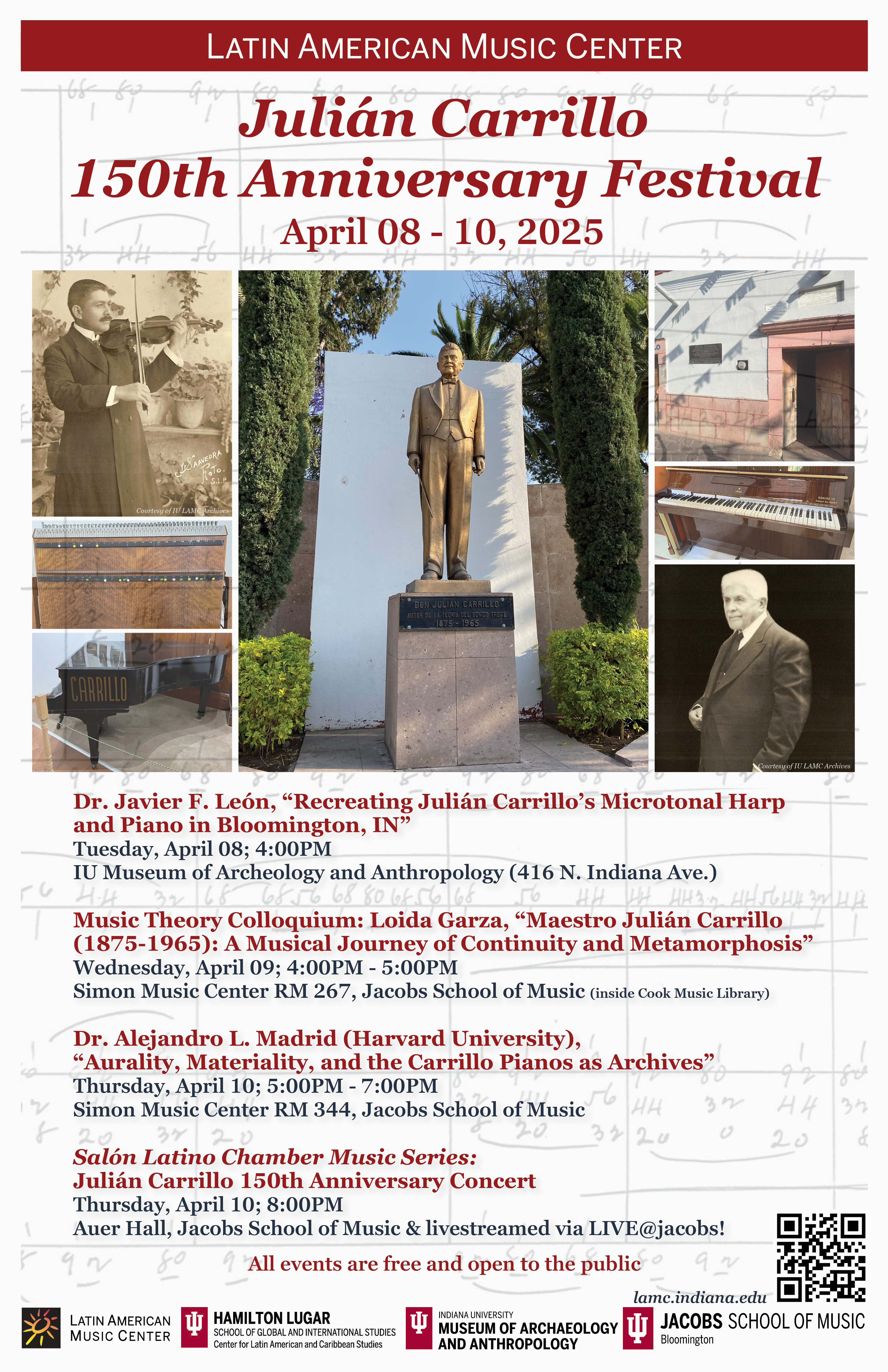Colloquium talk given by Loida Garza
Abstract: This year, 2025, marks the 150th anniversary of Maestro Julián Carrillo’s birth (1875-1965, México), the violinist and music theorist who discovered one-sixteenth tones in 1895 (El Sonido Trece) and composed tonal, atonal, and microtonal works in various genres. Despite the distinctive differences between his three musical languages, Carrillo’s substantial and approximately seventy-five-year oeuvre represents a single composer whose works unite under the umbrella of El Sonido Trece and through a compositional style that reflects both persistent continuity and metamorphosis over time. Carrillo collectively preserves and reworks ideas, gestures, themes, select passages, and entire openings and endings into different narratives that form compositional habits he carries from piece to piece, no matter which musical language he is writing in. In this celebratory talk, I will examine a number of these compositional habits through a selection of Carrillo’s musical works, ranging from early to later compositions. Carrillo’s music reflects his life in Mexico and experience studying music both in Mexico and in Europe (Madrid 2015). With roots deeply embedded in his home, Carrillo envisioned his music, inventions, and theories to move Mexico forward and to holistically demonstrate to the world how the Americas were innovatively widening the musical sound cloud. 150 years later, Carrillo’s legacy and the impact from his life’s musical journey continues in fruition.
Abstract: This year, 2025, marks the 150th anniversary of Maestro Julián Carrillo’s birth (1875-1965, México), the violinist and music theorist who discovered one-sixteenth tones in 1895 (El Sonido Trece) and composed tonal, atonal, and microtonal works in various genres. Despite the distinctive differences between his three musical languages, Carrillo’s substantial and approximately seventy-five-year oeuvre represents a single composer whose works unite under the umbrella of El Sonido Trece and through a compositional style that reflects both persistent continuity and metamorphosis over time. Carrillo collectively preserves and reworks ideas, gestures, themes, select passages, and entire openings and endings into different narratives that form compositional habits he carries from piece to piece, no matter which musical language he is writing in. In this celebratory talk, I will examine a number of these compositional habits through a selection of Carrillo’s musical works, ranging from early to later compositions. Carrillo’s music reflects his life in Mexico and experience studying music both in Mexico and in Europe (Madrid 2015). With roots deeply embedded in his home, Carrillo envisioned his music, inventions, and theories to move Mexico forward and to holistically demonstrate to the world how the Americas were innovatively widening the musical sound cloud. 150 years later, Carrillo’s legacy and the impact from his life’s musical journey continues in fruition.
Participation by Zoom is an option for those unable to attend in person. To request Zoom meeting credentials, email mustheor@iu.edu.


